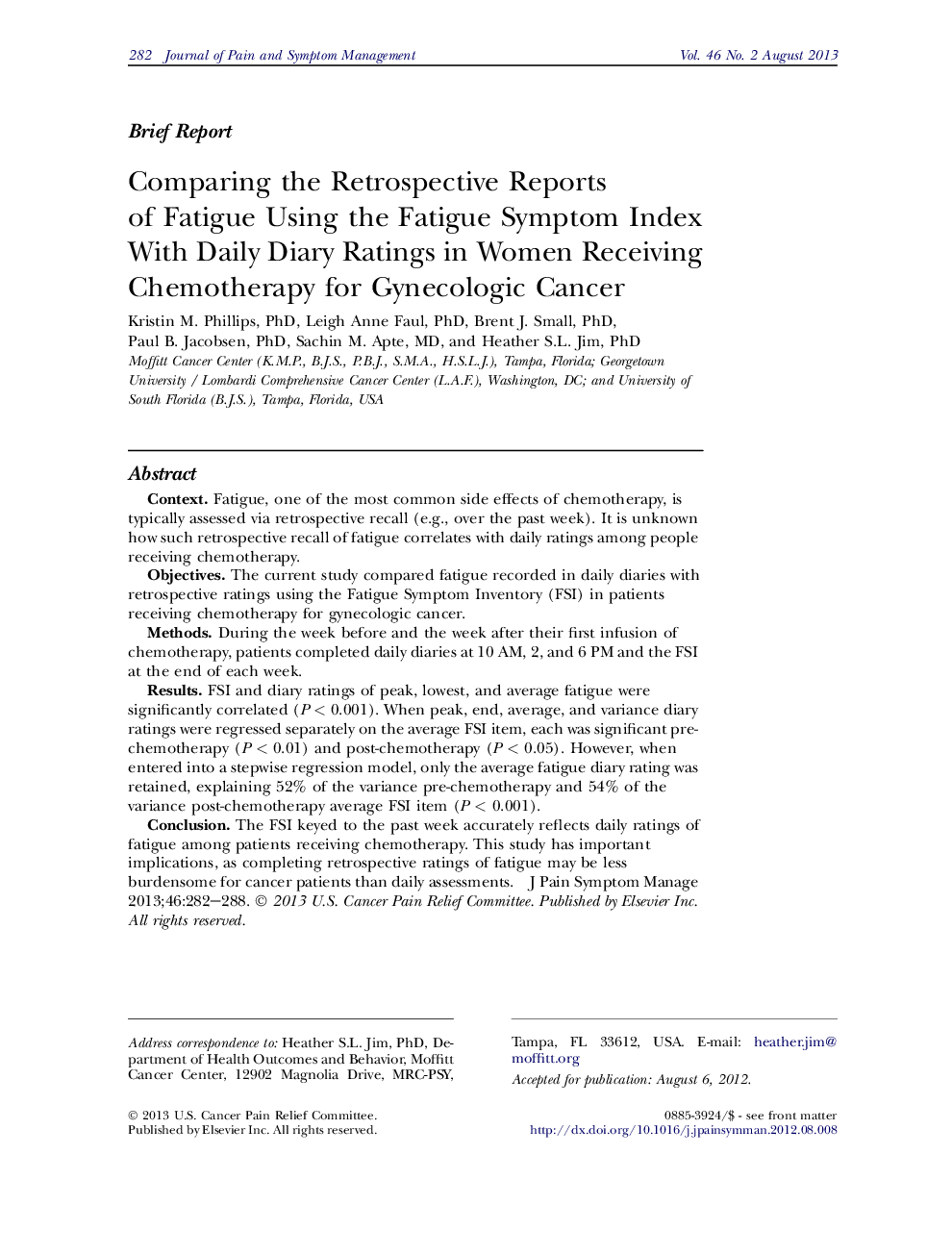| Article ID | Journal | Published Year | Pages | File Type |
|---|---|---|---|---|
| 2729974 | Journal of Pain and Symptom Management | 2013 | 7 Pages |
ContextFatigue, one of the most common side effects of chemotherapy, is typically assessed via retrospective recall (e.g., over the past week). It is unknown how such retrospective recall of fatigue correlates with daily ratings among people receiving chemotherapy.ObjectivesThe current study compared fatigue recorded in daily diaries with retrospective ratings using the Fatigue Symptom Inventory (FSI) in patients receiving chemotherapy for gynecologic cancer.MethodsDuring the week before and the week after their first infusion of chemotherapy, patients completed daily diaries at 10 AM, 2, and 6 PM and the FSI at the end of each week.ResultsFSI and diary ratings of peak, lowest, and average fatigue were significantly correlated (P < 0.001). When peak, end, average, and variance diary ratings were regressed separately on the average FSI item, each was significant pre-chemotherapy (P < 0.01) and post-chemotherapy (P < 0.05). However, when entered into a stepwise regression model, only the average fatigue diary rating was retained, explaining 52% of the variance pre-chemotherapy and 54% of the variance post-chemotherapy average FSI item (P < 0.001).ConclusionThe FSI keyed to the past week accurately reflects daily ratings of fatigue among patients receiving chemotherapy. This study has important implications, as completing retrospective ratings of fatigue may be less burdensome for cancer patients than daily assessments.
